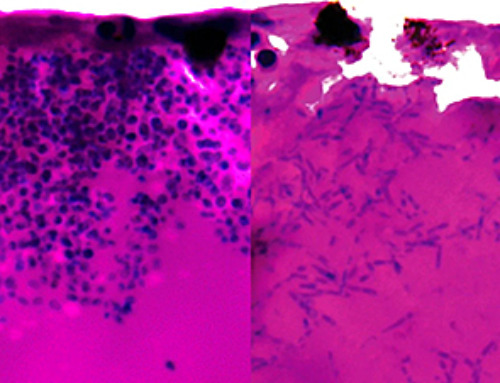Tiny particles called quantum dots reduce symptoms in mice primed to develop a type of Parkinson’s disease, and also block formation of the toxic protein clumps in Alzheimer’s. They could one day be a novel treatment for these brain disorders, although tests in people are some years away.
Quantum dots are just a few nanometres in size – so small they become subject to some of the strange effects of quantum physics. They have useful electronic and fluorescent properties and are found in some TV screens and LED lights.
Unlike most medicines, their tiny size means they can pass from bloodstream into the brain. Byung Hee Hong of Seoul National University in the South Korea and his colleagues wondered if they would affect the molecules involved in Parkinson’s or other brain disorders.
Parkinson’s disease involves gradually worsening tremors and movement problems. It is thought to be caused by a protein called synuclein found in nerve cells folding into the wrong shape, which triggers a chain reaction of misfolding in nearby synuclein molecules. This leads to a build-up of long strands or “fibrils” of the protein, killing neurons.
Quantum surprise
Hong’s team found that in a dish, quantum dots made from graphene – a form of carbon – bind to synuclein, and not only stop it from clumping into fibres, but also cause existing fibres to break up into individual molecules. “We didn’t expect the quantum dots to induce disaggregation of fibrils,” says Hong.
If the treatment affects people the same way, Hong says it is unclear how much benefit this would bring. “It’s hard to translate the results in mice to actual patients, whose systems are way more complicated. But we do believe quantum dots can make positive impacts to some extent.”
Image Credit: May C. Schiess, Roger Back, UT Medical School/Science Photo Library
News This Week
Scientists Unlock a New Way to Hear the Brain’s Hidden Language
Scientists can finally hear the brain’s quietest messages—unlocking the hidden code behind how neurons think, decide, and remember. Scientists have created a new protein that can capture the incoming chemical signals received by brain [...]
Does being infected or vaccinated first influence COVID-19 immunity?
A new study analyzing the immune response to COVID-19 in a Catalan cohort of health workers sheds light on an important question: does it matter whether a person was first infected or first vaccinated? [...]
We May Never Know if AI Is Conscious, Says Cambridge Philosopher
As claims about conscious AI grow louder, a Cambridge philosopher argues that we lack the evidence to know whether machines can truly be conscious, let alone morally significant. A philosopher at the University of [...]
AI Helped Scientists Stop a Virus With One Tiny Change
Using AI, researchers identified one tiny molecular interaction that viruses need to infect cells. Disrupting it stopped the virus before infection could begin. Washington State University scientists have uncovered a method to interfere with a key [...]
Deadly Hospital Fungus May Finally Have a Weakness
A deadly, drug-resistant hospital fungus may finally have a weakness—and scientists think they’ve found it. Researchers have identified a genetic process that could open the door to new treatments for a dangerous fungal infection [...]
Fever-Proof Bird Flu Variant Could Fuel the Next Pandemic
Bird flu viruses present a significant risk to humans because they can continue replicating at temperatures higher than a typical fever. Fever is one of the body’s main tools for slowing or stopping viral [...]
What could the future of nanoscience look like?
Society has a lot to thank for nanoscience. From improved health monitoring to reducing the size of electronics, scientists’ ability to delve deeper and better understand chemistry at the nanoscale has opened up numerous [...]
Scientists Melt Cancer’s Hidden “Power Hubs” and Stop Tumor Growth
Researchers discovered that in a rare kidney cancer, RNA builds droplet-like hubs that act as growth control centers inside tumor cells. By engineering a molecular switch to dissolve these hubs, they were able to halt cancer [...]














Leave A Comment